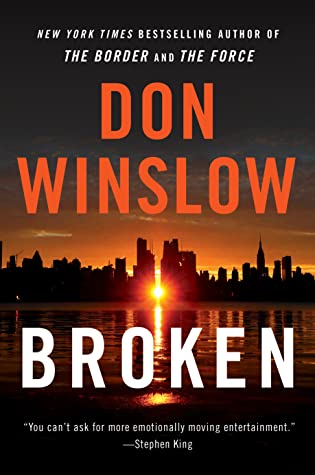Port Harcourt, December 25th 2005
I spent Christmas in a sanitarium.
It all started when I returned home from prison, where I was incarcerated for holding opposing views from those of the government.
When I got home, after spending forty-eight months in an underground government dungeon, I found my lovely wife Melissa lying comatose on the floor of our sitting room. The sofas were upturned and strewn on the floor like fallen soldiers. The draperies were drawn shut, casting the living room in darkness.
It happened that on the eve of my release, a ruthless thug had accosted my wife in the hallway of our block, as she returned from lectures in the university where we taught as lecturers.
The beast had put a gun to her head, hustled her into our apartment, savagely brutalized and raped her, before clubbing her on the head with his pistol and knocking her into a coma.
When I strolled into our apartment, expecting the lovely welcome of my wife, only to be greeted by the sight of her prostrate body lying forlornly on the floor, I knew the government had taken too much from me, and something human in me died.
From investigations conducted through the efforts of human rights organizations, it was discovered that the rapist who attacked my wife was an agent of the government.
***
Six years later, I spent Christmas in a sanitarium.
I spent Christmas in a nice but gloomy room that had the look of a medium-priced suite in a five-star hotel. The room was cosy. The notion was that relatives of patients would be happier and more comfortable in a hotel-like room than in a clinical setting.
Though a majority of the patients were oblivious of their surroundings, those with milder afflictions had the presence of mind to enjoy their environment.
Apart from the patients, the atmosphere also made visitors feel less bleak. Even the hospital bed was no concession to utilitarian design. It was a comfy five-star hotel bed. Only the forlorn form of Melissa lying living-dead on the bed spoiled the lovely ambience of the room.
I leaned over and kissed Melissa on her hallow cheek. She did not respond. She was alive but dead to the world. I took one of her hands and held it in both of mine, her hand did not grip mine in return because she was no longer aware of her environment. I touched her face, and her facial muscle did not flex. It remained slack and limp because she was a living dead.
“Melissa,” I called out to her comatose form, “Melissa, it is me, Michael. How are you coping, baby? Baby, you look exotic. You look beautiful. You always look lovely. I love you, Melissa, I love you.”
Melissa looked beautiful. For someone that has spent six years as a vegetable, and haven’t taken a single step, or experienced sunshine, or savoured the feel of fresh air upon her face for six years, she did look lovely and beautiful.
Melissa had spent six long years flirting with death, yet she looked exotic like a sleeping beauty queen on that cold and dry day of December 25 2005.
Due to the wonderful care she receives in that five-star clinic, Melissa’s hair was still rich and glossy like when I first saw her in the university senior staff club eleven years ago.
The clinic attendants washed her hair twice every week and brushed it daily. A team of dermatologists and physical therapists visited her daily and put her through a conscientious exercise in her passive state that was aimed at keeping her muscles and skin in good condition.
I held her hand and stared down at the joy of my life. For the past six years, I have been coming to see her daily, spending approximately four hours every day. On weekends, I stayed longer.
Despite the frequency and persistency of my visits and the fact that she never responded to my presence nor treatment and care, I never for once got tired of looking at her and admiring her beauty.
On that day, as I watched Melissa, I heard a sudden suction of laboured breath that expired in a gurgled sigh. Eagerly, I held her hand tightly, expecting her to miraculously awake from her coma, but this was not to be because Melissa was finally dead.
Melissa Olubanjo nee Okoronkwo was dead. I died too and spent Christmas in a sanitarium.
***
University of Port Harcourt, April 1994 – July 1999
I walked into the crowded arena of the senior staff club and saw a beautiful face. Amidst the boisterous horde of lecturers and professors that attended the academic staff union of universities (ASUU) meeting, a single face stood out in majestic splendour.
Propelled by some mysterious magnetism, I found myself standing beside the most beautiful woman I had ever seen, both in real life and in my dreams.
I gawked at her.
“Hey, Michael, have you met Melissa?” A familiar voice said to me, breaking the spell and rousing me from a trance. I looked at the source of the voice and saw professor Eke Nwosu, my mentor, and senior professor and dean of my faculty.
I was embarrassed.
“Hmm… not really. I only came along to say hello,” I stuttered
“Good. Melissa, this is Professor Michael Okoronkwo. Michael, please meet Dr Olubanjo.” Professor Nwosu introduced us.
I said hi, and Melissa nodded.
“Michael is the professor that propounded the theory of absolute nothingness, which states that absolute nothingness is absolute everything, and absolutely everything is absolute nothingness. A disputation of the absurd, if I must say,” Professor Nwosu added.
I was amused.
“I’m honoured to meet you, Michael,” Melissa said, offering me a handshake. She had a voice that rang like a flute sonata in a celestial symphony.
I held her hand and stared into her deep blue eyes dazzling coruscating eyes. Melissa was of mixed breed. A Nigerian dad and a white American mom. From the sound of her voice, I could tell she wasn’t raised in Nigeria. I told her so. I also told her not to pay any heed to professor Nwosu’s comment about me.
“Then, that will make you not different from the other lecturers, A stereotype pundit, and an augury of the death of our educational system. I will be disappointed if you turn out to be the mundane type,” Melissa said.
Professor Eke burst into laughter and said, “I failed to inform you that Melissa was born and bred in the United States. She has a degree, summa cum laude, in political science from Harvard. A master degree magna cum laude from Stanford Bridge, and a doctorate in political philosophy from Sol Bourne. Presently, she is the youngest PhD holder among the lecturers on this campus, and she is just 25.”
Now it was Melissa’s turn to be amused. “Do not mind professor Eke, 25 is quite old. In short, I feel like a Methuselah,” She said, laughing in that unique way of hers that rings with magnificent melody.
I was impressed, though I also had an impressive record myself, having graduated with first-class honour in sociology from the University of Port Harcourt, a master degree, PhD grade, in political economy from the University of Lagos, and a PhD in political philosophy from Yale.
At 28, I was already an associate professor, and at 32 I was conferred with full professorship. I became the youngest professor in the history of the university. But even with my impressive academic record, I still wonder what Melissa saw in me. Not a single feature or aspect of my face could be called handsome.
My forehead was too narrow, my ear too big, and my sick eyes always hidden behind thick concave glasses. Though I had a 20-20 vision, my eyes danced around from left to right like a pendulum, making people wonder which eye was focused on them when in fact both eyes were.
I also had the smile of a clown, and the frown of a psychopath yet, Melissa saw something in me. Despite her stately look, she wanted me, needed me, and loved me. She didn’t care about my appearance. I loved her totally in return.
On that day, in the crowded ASUU meeting, Melissa Okoronkwo saw something only she could see in me, and a whirlwind relationship was born which culminated in a short but blissful marriage.
It was April 14 1994.
***
We got married on a halcyon day.
Love pulsated in the air, and Melissa glowed like a lunar spark. She undulated like an empyrean queen, and her delicateness purified me and made me less like an excrescence of a monster.
Sweet music seeped from hidden audio speakers and arrested the mood of the academic society that graced our wedding and the aftermath reception at the senior staff club.
“Hey, buddy boy, so you finally succeeded in stealing my beauty queen from me, huh?” Professor Eke Nwosu said in his usual jovial manner. “I wonder what charm and voodoo incantations you used in winning her heart and holding her spell-bound?”
I laughed. Melissa chuckled.
“Serious,” Prof Nwosu continued. “Your miraculous conquering of the heart of the most beautiful nubile that walks this campus has made a die-hard agnostic like me to believe in a God because only God could make this possible.”
I couldn’t say a word in reply to prof. I just stared sheepishly in amazement at him, and he, noticing my speechlessness said, “Ha! Don’t mind my idiocy; it is just the ranting of a senile Neanderthal.”
“Who said you’re primitive?” Melissa asked him in her angelic voice.
“Ha, spare me that sweet nature of yours,” Prof. fulminated light-heartedly. “You think I don’t know that I am ancient? The generational gap between your time and mine is, to be candid, awesome. I still wonder how you youngsters love me so selflessly.”
Melissa gave me a wink and, before professor Eke could realize what hit him, we both rushed at the likeable old man and gave him a kiss he won’t forget in a hurry.
It was a wonderful day, my wedding.
It was December 18, 1994.
***
I brought my wife’s death. I was arrested on my birthday.
Before my ordeal in the government dungeon, because of the inhuman regime of the junta, I became a staunch government critic. We in the academia felt it was our duty to speak out against oppressive dictatorships and leaders with messianic illusions, so I spoke out fearlessly against the government of lunatics and wrote numerous articles, both internationally and locally against the junta.
On the day of my abduction by the government, I had returned home after delivering a firebrand lecture on the political economy of fear and voodoo dictatorships.
I got home and walked into the embrace of stone-faced secret service personnel seated around my lovely wife who appeared to be a hostage.
I saw death, and he was a man. He held me in a cold embrace.
It was August 13, 1995.
***
I counted sorrows in the shadow of death.
Looking back today, I now realize I was a total idiot, a senile fool, a stupid hero, a man with dead brain cells. Many of the wise intellectuals in the opposition had the foresight to take a flight out of the country to a distant land, and from there they continued the fight.
The truly intelligent ones escaped with their loved ones. But I was egg-headed enough to stay at my post in the university and attack the government. I paid dearly for this oversight. I was sent to jail without trial. I spent 48 months in underground cells. The junta confiscated all my belongings.
The head of the junta died, and many political prisoners were released. I was forgotten in the amnesty and spent my fourth Christmas in jail.
It was December 25, 1998.
***
I met a dead woman breathing.
All through my ordeal, Melissa stood by me, remained faithful, and bore the travail stoically. Even when I was locked up for months incommunicado, she kept the candle burning. She bore all intimidations and threat courageously, she refused to be broken and, above all, she continued to love me though I was a fool. My umbrage and vehement protest against the government was the catalyst of our doom.
Melissa went through such hell that she lost our unborn baby in a miscarriage four months after my incarceration. On that occasion, as the wife of an unpatriotic dissident, she was picked up by hellish men of the dreaded state security service and was brutalized and dehumanized, all in a bid to teach me some lessons and serve as a deterrent to aspiring activists.
Because of the incessant harassment of our family by the government, Melissa became an anti-government activist. She used her foreign connections to terrorize the government. She became marked for death.
Melissa had become a thorn in the flesh of the government, but because she was an American citizen, the government couldn’t eliminate her the way they murdered others, they had to make it look like the act of a criminal and so, they sent their criminal to beat her up, rape, and murder her. The thug did a better job, he left her brain-dead.
Melissa took her activism beyond the military era, she lambasted the so-called civilian administration, questioned the rationale behind my continuous incarceration. Through secret contacts, she obtained damning information on most of the governors of the oil-rich states of the Niger-delta.
She was attacked on the eve of my release.
It was August 12, 1999.
***
I learnt a lot from the memories of the dead.
I have learnt to put a reign on my anger and bitterness as I try to forge on with life without Melissa. I’m no longer bitter though sometimes I boil with silent rage.
The mere thought that the assassin that murdered my wife is still at large and probably working for the government makes me feel very sad for Nigeria.
Till date, anti-government critics are still disappearing in Nigeria












